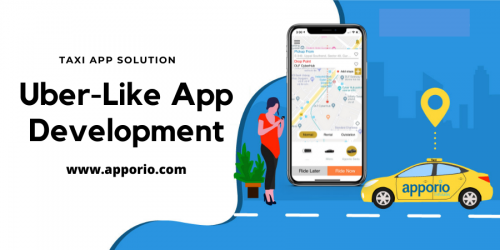Businesses face multiple problems and barriers when extending their market capital and growing their target audience. Email marketing and digital advertising add value to some extent but still make it somewhat difficult for marketers to introduce their partnered businesses to a whole new market of their target audience.
In a 2021 survey of affiliates globally, most respondents (57.55 percent) reported earning less than ten thousand dollars from their affiliate marketing endeavors. Affiliate marketing, with diverse use cases and features, allows businesses to partner with affiliate marketers on easy and flexible terms, which eases the work of companies looking to increase their potential customer space and market size.
What Motivates Businesses to Employ Affiliate Marketing Strategies?
Affiliate marketing is one of the best sources for Business-to-Business (B2B) companies to create cost-effective and reasonable marketing strategies. B2B affiliate programs and services allow businesses to tap into new dimensional audiences that help them, which is initially impossible for companies to do.
Affiliate marketing helps businesses increase their sales and revenue stream at a low-cost investment rate, as it’s considered a fair deal between companies and affiliate marketers.
Businesses use affiliate marketing strategies for several reasons:
Low Risk
Affiliate marketing can be started by partnering with individual affiliate marketers with a knack for advertising and promoting their products and services to their desired audience. Businesses don’t need to invest and blindly wait for their investment returns as they only pay wherever affiliate marketers make a sale. Hence, this strategy is a relatively risk-free approach.
Cost-Effective Advertising
B2B affiliate marketing means business businesses can leverage the presence of the efforts and capture their already established audience. Affiliate marketing is a unique and flexible marketing model that allows companies only whenever they bring sales or leads to their table, as this makes a performance-based model and costs less to businesses compared to digital advertising methods, which cost a massive amount of investments and resources.
Performance-Based Model
Unlike other digital and traditional marketing strategies and techniques, businesses must rely on and bear unnecessary costs. This means companies need to pay additional fees for advertising their ads, whether they directly affect their performance or not. Affiliate marketing’s performance-based model allows businesses only to pay whenever their affiliates bring or entertain their required goals and success metrics.
Wider Reach
Affiliate marketing enables businesses to expand their market capital and reach their niche-related target audience. Affiliate marketers possess loyal and specific audiences with particular interests and demographics. Companies can leverage their already established precedence and loyalty among their audience and, in contrast, benefit from its cause.
Improves Brand Awareness
Businesses’ catchy words and claims cannot benefit resounding enough to increase their brand awareness and catch new audience segments. Instead, companies can hire affiliate marketers to promote their products and services to loyal audiences who trust their personalities and trust their due diligence. Companies can automatically benefit from this trust and regain their brand awareness and opportunity to reach new prospective customers.
Simple To Gauge Success
Unlike Search Engine Optimization (SEO) and digital advertising strategies, businesses cannot predict and measure their growth precisely due to certain obligations that come into play. Affiliate marketing agencies give businesses a roadmap of the services, results, and outcomes they generate for the company. Considering their flexible nature, businesses can easily measure their Key Performance Indicators (KPIs) and communicate with each other better.
Payment Models of Affiliates
Affiliate marketers are not only paid by driving results but can also be paid to generate clicks, leads, actions, or sales. Their diverse payment models allow businesses to experience cost-effective marketing models for merchants and transparent and profitable income for affiliates. Some of the standard payment models are as follows.
Pay-Per-Click (PPC)
This is the model in which affiliates charge a commission every time the link achieves a click from their social website. This makes businesses pay affiliates every time the visitors direct to their website via affiliate marketers’ promotional link.
Pay-Per-Lead (PPL)
This model links to every time the affiliate marketers bring leads to businesses. It can be opt-in through email subscriptions, consultation calls, or their social presence. This model is more complex than PPC and ultimately pays more in terms of the PPC model.
Pay-Per-Sale (PPS)
It stands as the most common affiliate marketing model and often pays high bucks to affiliate marketers. Affiliates get paid for every sale they generate through their connections and presence.
Closing Words
Affiliate marketing services pave the way for businesses, as they can gain a new audience and resounding brand awareness to their presence, which independently is impossible and too expensive. Affiliates earn commission every time they bring in sales, and businesses, in return make profitable sales. To conclude, affiliate marketing can help companies dominate, hunt new markets, and kickstart their revenue stream.









